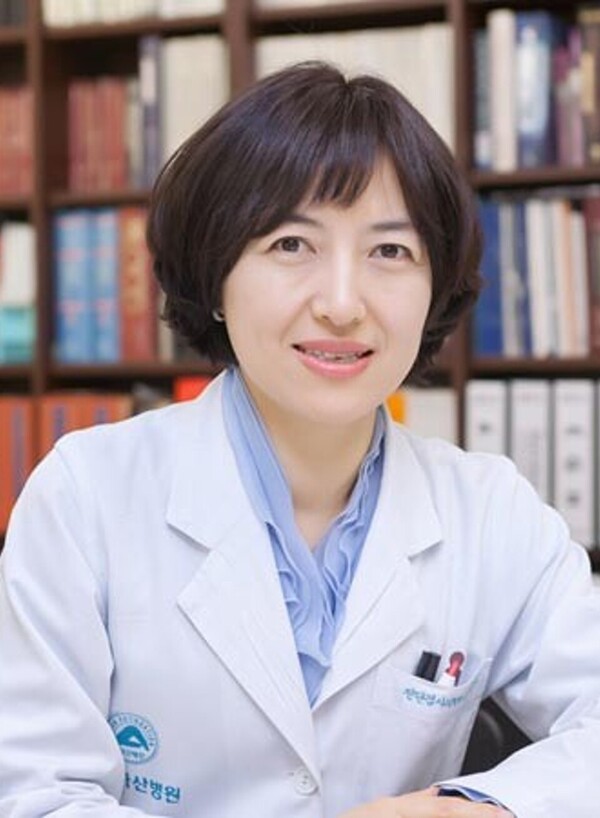Professor Kim Mi-na, Chairperson of the emergency committee at the University of Ulsan College of Medicine Medical Faculty Council
To the Chairperson of the Korean Federation of Severe Disease Patients,
Dear Chairperson Kim Sung-joo,
I would like to express my respect for your dedication to protecting the rights and interests of severely ill patients on behalf of the seven organizations representing patients with the most challenging illnesses. I am also very sorry for the daily suffering of patients due to the mass resignation of trainee doctors. Still, I am writing this article to clear up some misunderstandings about the resignation of junior doctors and professors.

The job of professors at university hospitals is to teach and guide medical students and residents. Treating patients is a concurrent job. The professors are there to make medical students and residents good doctors and specialists. I've been a physician for 35 years and a professor for 25 years. I am just a few years away from retirement. It's up to medical students and residents to pick up the slack where we left off. What happens if 10,000 soon-to-be specialists give up training for 10,000 doctors who will come out 10 years from now? The training basis will be destroyed in the next 10 years. If we don't produce enough doctors to care for critically ill patients, who will be there after the current professors leave the hospital?
We need the best specialists to diagnose and treat critically ill patients. The trainee doctors who have left the field are the only ones who will be at the bedside of critically ill patients soon. Even if we train 10,000 or 100,000 doctors yearly, there's no guarantee that 10,000 will choose to go into essential healthcare like them. If current medical residents feel discouraged and leave, the number of future residents applying for training will plummet. You wouldn't think that the next 10,000 students entering medical school over the next five years would be the most motivated to treat critically ill patients, would you? That would never happen.
The current medical residents are young doctors who have never lost sight of their mission since they entered medical school until today. They are the doctors willing to stay up at night and put in the work to protect you. They voluntarily undergo a difficult training process, and the government has told them that if they take collective action, their resignation will not be accepted, and they will be punished. The government has also told professors at university hospitals that if they resign, they will be forced to work under a practice maintenance order. If the government publicly treats them as slaves, no one will come back.
Protecting severely ill patients cannot be done by a professor alone. It’s the job of a team working together for a long time. Professors currently stay at the hospital and treat severely ill and emergency patients with superhuman efforts. However, they are already reaching their limits and resigning one by one. Is it their job to stay with you until the last one is left? In a few months, most university hospitals you've been treated will be closed. We must stop this emergency and normalize the situation before it happens.
Professors are prepared to keep you until their resignations are accepted. It's not that they're leaving you but throwing themselves into the fray one last time to ensure the situation doesn't get out of hand. If the government enslaves doctors in essential care and turns them into unscrupulous criminals who leave their patients to keep their turf, current doctors will not come back, and there will be no trainee doctors in the future. How long can you wait for the government’s victory in healthcare reform? It's a hundred times more important to have teaching hospitals functioning now than to have 10,000 more doctors after 10 years. The respect and trust of patients will bring doctors back to their bedside. Please support us.
Thank you.
Sincerely,
Kim Mi-na
Chairperson of the emergency committee at the University of Ulsan Medical Faculty Council (Professor of the Department of Diagnostic Laboratory Medicine at Asan Medical Center)
Related articles
- Experts clash over effective dates of trainee doctors' resignation letters
- Korean trainee doctors seek ILO's intervention against government's work order mandate
- 'Void of trainee doctors, Big 5 hospitals could suffer bankruptcies in a cascade'
- Exodus of medical residents forces neurological society to cancel workshop
- Medical professors at University of Ulsan unanimously decide to resign
- Nurses are filling in trainee doctors from today. Here’s what they can and can’t do.
- Seoul's ultimatum to trainee doctors: return to teaching hospitals or face de facto license revocation
- Med school professors call for concessions but Seoul stands firm on increasing med school quota
- 350 delayed surgeries reported in 1 month after trainee doctors left hospitals
- President Yoon calls for dialogue on med school quota amid ongoing healthcare crisis
- Health Ministry issues public notice mandating return-to-work for 1,308 trainee doctors
- Professors from top Korean medical schools to resign en mass next Monday
- 2,460 medical students intend to join army but government tells them to return to study
- A departing cardiothoracic surgeon laments healthcare crisis in Korea

